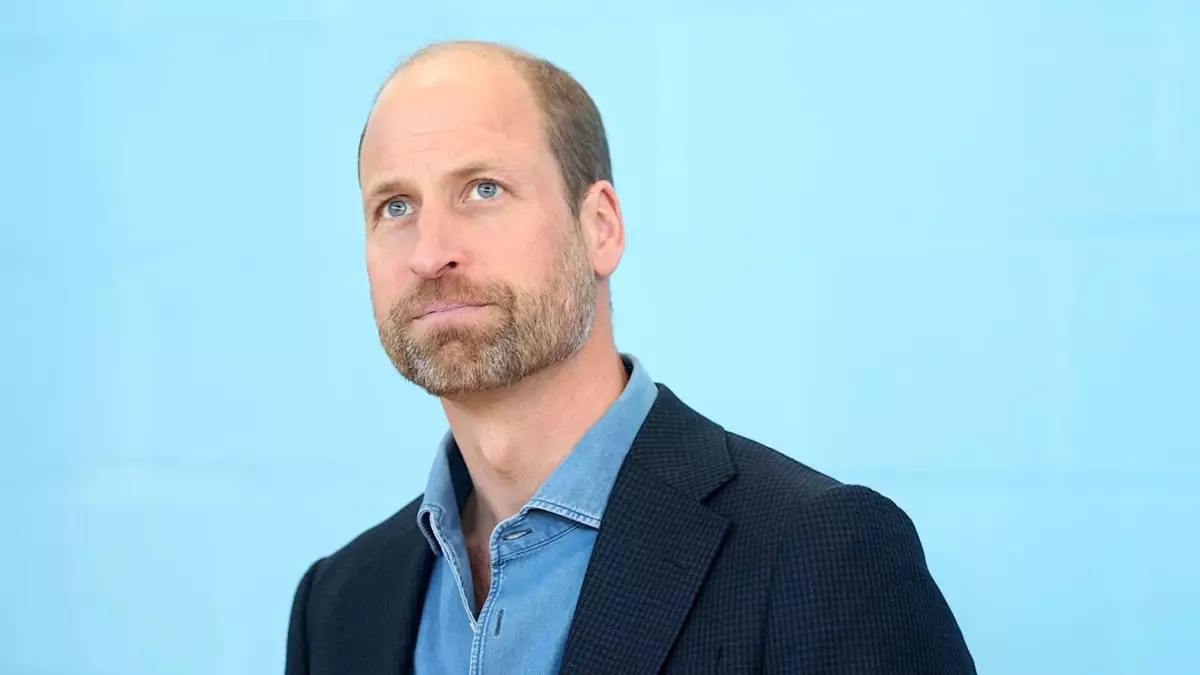When Prince William embraced his role as the Duke of Cornwall in 2022, he inherited not just a title but also a legacy entwined with financial strength and rural traditions. This vast estate of over 128,000 acres, spanning 20 counties, has historically served as a significant revenue stream for the royal family—rooted in agriculture and the stewardship of rural life. However, the Prince’s approach promises a seismic shift in its operations and ethos. Rather than a mere emphasis on profitability, William’s vision ambitiously aims to create a legacy of social impact. This intention not only reflects a modern interpretation of royal duty but also resonates with a growing public desire for corporate responsibility and community engagement.
A New Breed of Leadership
During a recent visit to Corston Fields Farm near Bath, the Duke’s engagement with long-term tenants revealed his refreshing approach to leadership. In a light-hearted exchange, when tenant Gerald Addicott suggested a rent-free tenancy, William admitted that he too had pondered such ideas, leading to a moment of levity in an otherwise serious conversation. Yet, this humorous anecdote underlines a more profound commitment to reform within the estate’s management. By contemplating radical changes like rent abolition, William illustrates a willingness to break away from longstanding traditions to forge a deeper connection with his tenants—signaling that profitability should not overshadow human consideration.
From Profit to People
The core of William’s philosophy for the Duchy seeks to transform it into “a positive force for good.” This mantra expands far beyond agricultural development; it encompasses a holistic approach addressing societal issues, including housing instability, mental health in rural communities, and fostering social bonds among tenants. Highlighting his unique approach, William’s introduction of projects like supportive housing in Cornwall underscores an ambition to revitalize local communities. His proposals reflect a desire to transition the estate from a profit-driven model into an organization actively caring for the people it serves.
Creating Community Connections
Closer community ties have become a focal point for the Duchy. The Prince’s initiative to ease tenant struggles—by appointing a “family farming ambassador”—and hosting informal community events like “pie and pint” evenings exemplifies his understanding of local needs. These gatherings not only provide networking opportunities but enrich relationships among locals, fostering a family-like atmosphere that many modern rural centers lack. This informal engagement showcases William’s keen awareness of the social fabric of rural life, encouraging open discourse about communal challenges.
Championing Sustainability
William’s vision also transcends immediate social concerns to incorporate environmental stewardship. His advocacy for sustainable practices, including reforestation efforts and peatland restoration, highlights an urgent commitment to ecological responsibility. This direction aligns perfectly with contemporary values, promoting a symbiotic relationship between agriculture and nature—an acknowledgment that thriving communities are inextricably linked to the health of their environment.
Bridging Tradition and Innovation
While the Duke is set on modernizing the Duchy’s operations, he remains respectful of its foundational values. Balancing the delicate interplay of heritage and progress, William aspires to position the Duchy as a benchmark for how expansive estate management can harmonize profit and purpose. His recognition of the pressures faced by farmers—from market competition to escalating loneliness—demonstrates that he comprehends the intricacies of rural livelihoods. The blend of aspiration and practicality in his initiatives reflects a desire not just for superficial change, but for a meaningful transformation that cultivates resilience within communities.
Prince William’s tenure as the Duke of Cornwall heralds a promising evolution in the royal approach toward estate management. In a world increasingly craving authentic connection and responsible stewardship, the Prince’s blueprint for the Duchy as a platform for positive change might very well shape a new narrative of what it means to uphold royal responsibilities in the 21st century. His vision could inspire individuals and organizations alike to recognize the power of impact over income, encouraging a shift towards a more inclusive and sustainable future.

